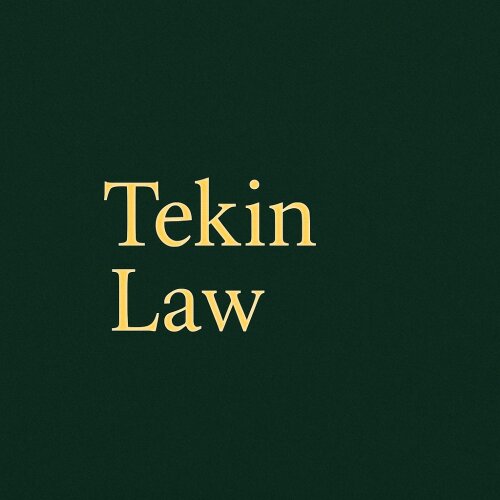Best Administrative Lawyers in Turkey
Share your needs with us, get contacted by law firms.
Free. Takes 2 min.
Or refine your search by selecting a city:
List of the best lawyers in Turkey
Legal guides written by Tekin Law Firm:
- Arbitration in Turkey
About Administrative Law in Turkey
Administrative law in Turkey governs the activities of administrative agencies of government and covers the actions of government officials. It primarily involves the regulation and enforcement of the procedures, rules, and regulations that these entities must follow. This area of law ensures that government actions comply with the law, protects the rights of citizens, and provides a mechanism for challenging regulatory decisions.
Why You May Need a Lawyer
There are various situations where individuals or entities might require legal assistance in the field of administrative law in Turkey. Some of these include navigating complex regulatory requirements, challenging governmental decisions, dealing with permits and licenses, or when contesting administrative fines. Lawyers specializing in this area can ensure compliance with intricate legal standards and represent clients in disputes involving government agencies.
Local Laws Overview
In Turkey, administrative law is primarily codified in the Turkish Administrative Procedure Act and related statutes. Key aspects often include the rights and procedures for challenging administrative acts, the functioning of administrative courts, and the role of various administrative bodies. Understanding the relationship between local, regional, and national regulatory frameworks is crucial for anyone engaged in litigation or compliance issues related to governmental actions.
Frequently Asked Questions
What is the role of administrative courts in Turkey?
Administrative courts in Turkey handle disputes between individuals or entities and government agencies, ensuring that administrative acts conform to the law.
How do I challenge a government decision?
Challenging a government decision typically involves filing a complaint or appeal with the relevant administrative court. A lawyer can help ensure proper procedures are followed.
What is an administrative act?
An administrative act refers to any decision or action taken by a government authority that affects the rights or duties of individuals or entities.
Can I represent myself in administrative court?
While individuals can represent themselves, it is generally advisable to seek legal counsel due to the complexity of administrative legal procedures.
What are my rights if I disagree with an administrative penalty?
You have the right to appeal the penalty within a specified period, usually through an administrative court or relevant government authority.
Are administrative proceedings public?
Generally, administrative court hearings are public, providing transparency in governmental decision-making processes.
How does one enforce a decision by an administrative court?
Enforcement typically involves administrative measures or, if necessary, judicial procedures to ensure compliance with the court's decision.
What is judicial review of administrative action?
Judicial review involves the examination of administrative decisions by a court to ensure legality, reasonableness, and fairness.
Is there a time limit for initiating an administrative lawsuit?
Yes, there are specific time limits for filing a lawsuit, which vary depending on the nature of the claim. Consulting a lawyer can clarify applicable deadlines.
What types of remedies are available in administrative law cases?
Common remedies include annulment of the administrative act, compensation for damages, and enforcement of specific performance.
Additional Resources
For additional assistance, you can consult the Turkish Bar Association, local administrative courts, or professional bodies specializing in administrative law. Government agencies may also provide information regarding specific regulations and applications.
Next Steps
If you need legal assistance in administrative matters, consider consulting with a lawyer experienced in Turkish administrative law. They can offer advice tailored to your situation, assist in preparing necessary legal documents, and represent you in court if required. Conducting a preliminary consultation can help clarify your options and formulate an effective legal strategy.
Lawzana helps you find the best lawyers and law firms in Turkey through a curated and pre-screened list of qualified legal professionals. Our platform offers rankings and detailed profiles of attorneys and law firms, allowing you to compare based on practice areas, including Administrative, experience, and client feedback.
Each profile includes a description of the firm's areas of practice, client reviews, team members and partners, year of establishment, spoken languages, office locations, contact information, social media presence, and any published articles or resources. Most firms on our platform speak English and are experienced in both local and international legal matters.
Get a quote from top-rated law firms in Turkey — quickly, securely, and without unnecessary hassle.
Disclaimer:
The information provided on this page is for general informational purposes only and does not constitute legal advice. While we strive to ensure the accuracy and relevance of the content, legal information may change over time, and interpretations of the law can vary. You should always consult with a qualified legal professional for advice specific to your situation.
We disclaim all liability for actions taken or not taken based on the content of this page. If you believe any information is incorrect or outdated, please contact us, and we will review and update it where appropriate.
Browse administrative law firms by city in Turkey
Refine your search by selecting a city.
















